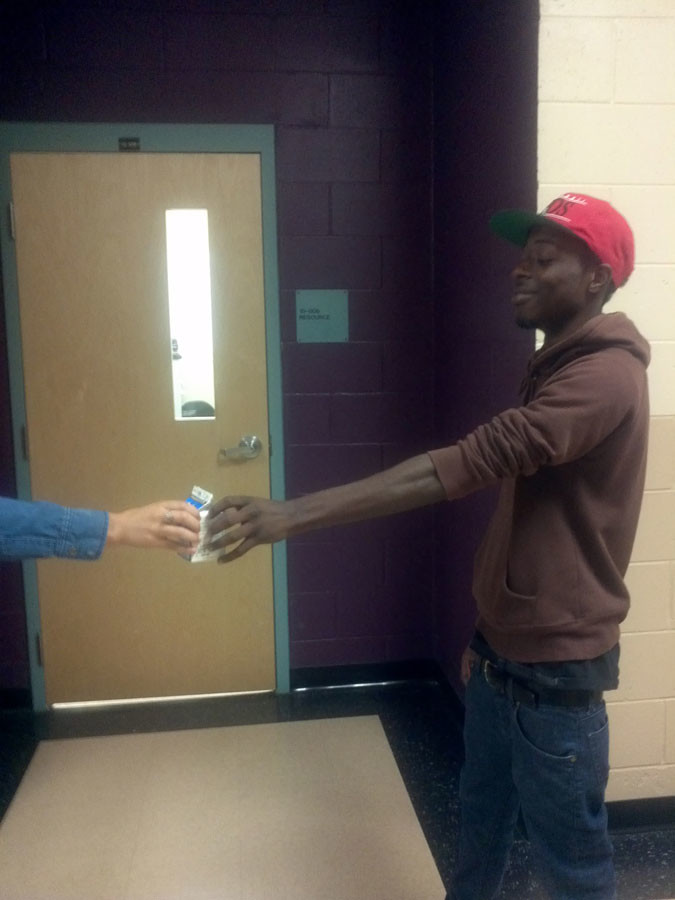Whether on school campus or around Seminole County, students are lending a helping hand to many different non-profit organizations, fulfilling the term called “community service.”
Many SHS students, especially seniors, are doing community service to meet requirements for scholarships such as Bright Futures, and even to meet requirements for organizations like National Honors Society.
However, what students sometimes do not realize is that the community service they are doing today will have lasting effects on them tomorrow and in the future.
Community service and volunteering come in different forms and are essentially something everyone participates in every day. Volunteering refers to voluntary, unpaid actions of assistance performed by people to benefit others, normally, other members in one’s community. Types of community service include personal service, localized efforts, and large-scale initiatives, as categorized by University of Michigan researchers.
Personal service is volunteering without affiliation to or support from any particular service group. It involves a direct service to another person, such as mentoring a child, or spending time with the elderly. Personal service can also be geared towards the general public good like picking up trash in a park or spending the day serving meals at a soup kitchen.
Students like sophomore Christina Vincenti participate in personal services often, “I volunteer downtown feeding homeless people.”
Localized community service involves working with a local organization in one’s community such as a church or extracurricular groups at Seminole. Large-scale initiatives involve volunteering with organizations that extend their participants to national or international levels. This including national service days like Earth Day and organizations like the Girls Scouts of America. These types of community service give Seminole students plenty of options.
Certainly, the organizations and communities that students volunteer for and participate in gain help and assistance, but the students are the ones that need and receive the most gain. Diane Hedin, researcher and author of the essay “The Power of Community Service“, said, ” Community service [learning] provides the critical missing link for many students, an opportunity to apply academic learning to real human needs and to make the knowledge gained usable in one’s thinking beyond the situation in which the learning occurred.” Hedin’s essay was used when the University of Michigan conducted in-depth research in 2005 about how community service impacts the participants.
No doubt, there are numerous benefits to being involved in community service and volunteering. Students’ gains are mostly psychological, social, and cognitive. Overall, students who volunteer have shown an increase in positive feelings, mental health, and a decrease in depression and stress. Depending on the type of volunteer work, volunteering is linked to longer life spans and improved mental health.
“Though I do not volunteer much,” said senior Brandi Kim, “if I do, it’s at Harvest Time International and I’m also in Key Club. I like that you know you’re brightening someone’s day. I’ve realized that you shouldn’t spend too many seconds down, because those seconds are wasted not bringing someone up.”
Volunteering causes students to bond and communicate with other participants and members of the community. This causes an enhancement of interpersonal and communication skills and an increase in their social network. Volunteering can lead to an increase of compassion for others, and inclinations to trust and cooperate with others. Community service gives students an increased sense of social responsibility, and a greater urge to give back to the community.
Surprisingly, a bit of learning is involved in volunteering. Students learn about the organization they volunteer for, responsibility, how to be an active citizen, and problem solving skills. Students develop an appreciation for civic affairs and are exposed to different ways of thinking and diversity.
“Volunteering and helping people in need teaches you to be more appreciative,” said sophomore Bryan Muniz.
Community service is something that students and faculty at Seminole should get involved in. Not only because of its benefits, but because volunteering helps others that really need it. Nothing gives one a better feeling than volunteering at a soup kitchen and passing a plate to a hungry child, or picking up trash around campus. Knowing that the effort and hard work one puts into an activity for an organization not only gives one a positive feeling, but helps someone else in the community smile.
The service one does today will affect others tomorrow.



















